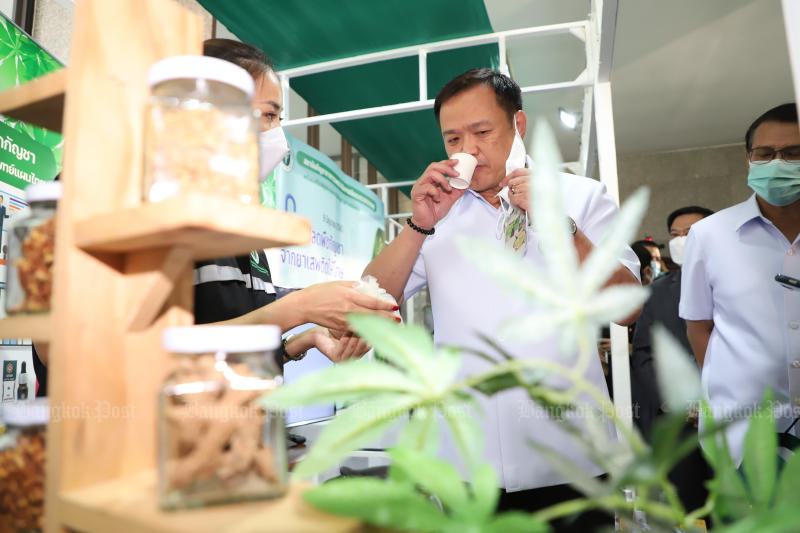
Public Health Minister Anutin Charnvirakul has refused to back down from his decision to decriminalise cannabis despite calls for the policy to be immediately suspended.
Mr Anutin, who also serves as a deputy prime minister, said on Tuesday that a House committee scrutinising the bill on cannabis and hemp is expected to finish work on the bill by the end of next month before presenting it for approval by parliament and royal endorsement.
Mr Anutin said Prime Minister Prayut Chan-o-cha has promised to push the bill through during the current parliamentary session.
"We cannot step back and make cannabis an illegal drug again. The plant is useful as a form of medical treatment and will benefit the economy. We have come too far [to turn back now]," said Mr Anutin, who also leads the Bhumjaithai Party.
He tried to allay the concerns of those calling for the policy's suspension, saying regulations are in place to control the use of cannabis and that its abuse by children is also illegal.
Pushing through the decriminalisation of cannabis was among Bhumjaithai's flagship policies ahead of the 2019 election.
Over 850 doctors and staff at Ramathibodi Hospital are calling to reverse the decision, pending the implementation of adequate controls to prevent the abuse of cannabis by youths.
This latest salvo was announced by the president of the Forensic Physicians Association of Thailand, Smith Srisont, in a Facebook post on Monday.
Dr Smith said 851 doctors, lecturers as well as alumni of Ramathibodi Hospital under Mahidol University are calling for the policy's immediate suspension because decriminalisation without adequate controls to prevent cannabis use outside of medicinal purposes could have a negative impact on young people's physical and mental development.
In response, Bhumjaithai Party MP Supachai Jaisamut, who chairs the panel overseeing cannabis- and hemp-related laws, said there are rules in place that are meant to prevent cannabis abuse, especially by individuals under 20 years of age.
Addressing the doctors' concerns, he said the government is "doing its best to come up with more effective rules to seal off any remaining legal loopholes in our medical cannabis regulations".
Supat Champathong, permanent secretary for the Education Ministry, on Tuesday voiced support for the call, saying some announcements issued by the Public Health Ministry to regulate the use of cannabis were still unclear.
"One regulation bans the consumption of cannabis in public places, but not in private places or at home," Mr Supat said.
"There was a news report about a school where students took cannabis in a closed-door classroom, but police could not take any action because they interpreted the action as having taken place in a private space," he said.
"But this was clearly illegal because the school is a public place and people under 20 are banned from using cannabis."
He said the liberalisation of cannabis should be suspended pending the enactment of clear legal controls.







